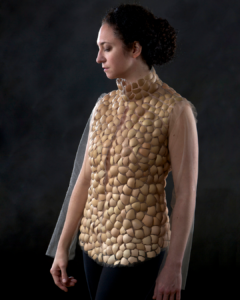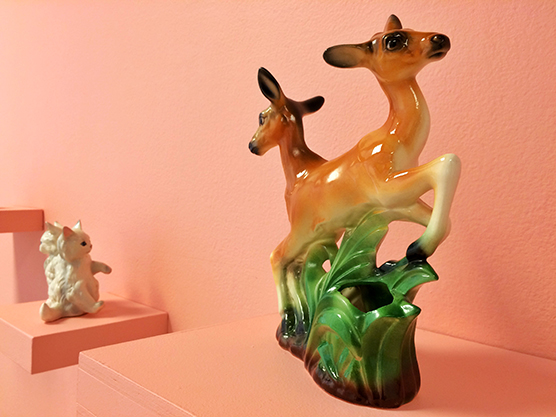
In honor of Women’s History Month, Houston Center for Contemporary Craft (HCCC) is participating in #5womenartists, a national campaign led by The National Museum of Women in the Arts to share information about women artists. As mentioned here, this March, we will highlight five women artists working in traditional craft media that are currently exhibiting at HCCC.
This week, HCCC’s Hayley McSwain asked mixed-media artist and ceramic restorer, Debra Broz, currently featured in Mixed and Mastered: Turntable Kitsch, a few questions about her work and influences.
Hayley McSwain: Do you think gender plays an important role in your work? Do you think artwork can be more successful if the gender of the artist is ambiguous?
Debra Broz: I think gender has always been an undercurrent in my work. I’ve always been interested in the idea of “women’s work” and how perceptions of women are changing over time. I also feel tied to a strong craft tradition through my grandmothers. Both of them sewed and quilted, both collected things, and my grandmother on my mother’s side made ceramic animals like some of the ones I use as materials for my sculpture.
By collecting and re-making these ceramics I can carry on her tradition, with my own twist. In college I did a series of works that explored my maternal grandmother’s struggles as a woman coming of age in the 1940s based on her papers and other relics. After that, I started making works that included sewing through paper. I felt the action of sewing was connecting me to a historical line of women. I just began a small series of works that include sewing on paper. I have always come back to that gesture over the years.
As far as success and gender in the arts – we know that there are fewer women than men represented in galleries, museums, art fairs and art publications. There have been studies done that show people with male names or ambiguous names are more likely to get job opportunities than candidates with female names… so ambiguity could potentially lead to more success. I think about the rumors that Banksy is a woman – it would be an interesting experiment in the art market if that was the truth. I think things are slowly improving though – becoming more equal, and I’d rather not be ambiguous even if it means more financial success or notoriety. I’d rather just advocate for the idea that people attempt to make sense of each other as they are… I know that’s a long process though.
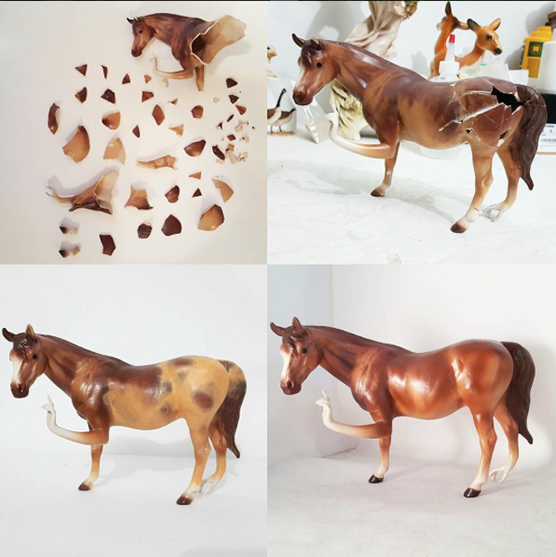
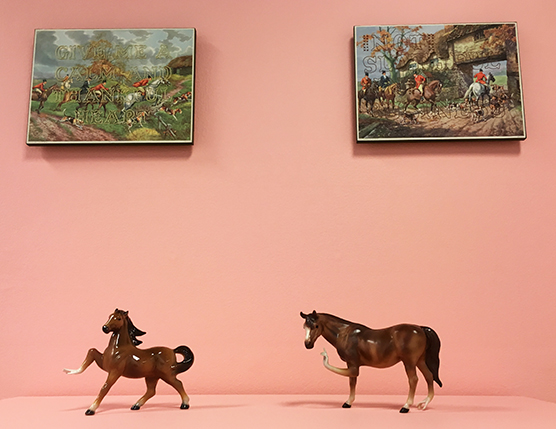
HM: When people see your work they are often reminded of objects collected by their grandmothers or other female relatives of an older generation. Why do you think collecting these objects is seen as a feminine activity and how do your reconstructions of these objects bend that narrative?
DB: I think collecting these objects is seen as feminine because they are domestic objects and they are decorative. It fits into the traditional narrative of womens’ domestic role- that women were to keep the house, and keep it beautifully, to a set of idealized standards. These objects also reflect an idealized set of standards for women themselves – delicate and happy, carefree, but poised, perfectly formed.
The alterations I make in my sculptures wreck those idealizations. The work is outside of what is acceptable in the traditional narrative because it is unusual, subversive. The alterations also add layers of content to what begin as meaningless objects. Kitsch becomes a conversation about genetic mutations, a story of science fiction, a seamless joke, a question about the truth.
HM: Do you have a female role model that has inspired you and your career? If you do, how has this person influenced your life?
DB: My mom is really my biggest female role model, she was the person who reinforced the idea that being a wife or a mom was not the ultimate goal for women. My mom is a woman with a career and personal projects and a life of her own. She never lost herself in domestic life, and my parents had a very balanced marriage. My mom values intelligence, she cares a lot and she tries hard. She balances things well. She can talk people into doing things. She likes to win. I learned all these things from her, she made me independent.
I haven’t had one specific career role model, but I was definitely supported in my art by my high school art teacher, Barbara Peck, who encouraged me to follow my own direction and study contemporary art; and my college advisor, Nancy Newman Rice, who is a painter and made me believe that if art was what I wanted to do I could do it, but that it would take a lot of work.
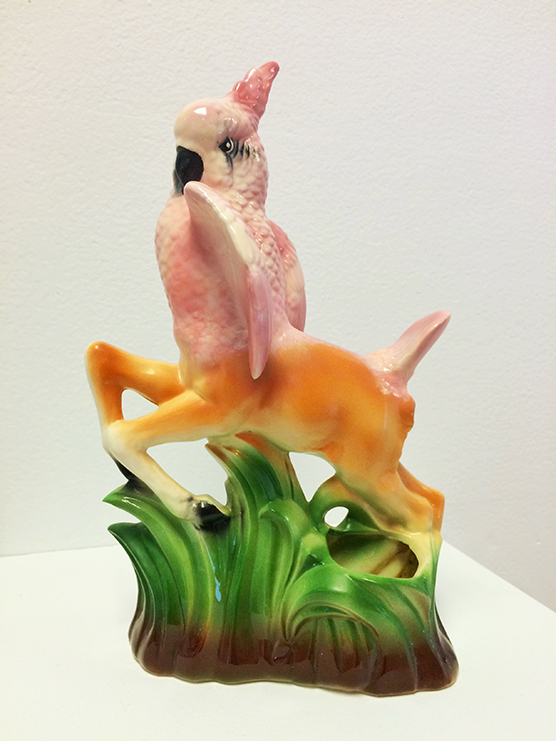
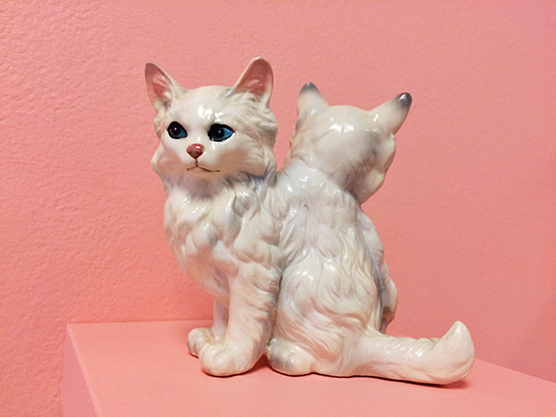
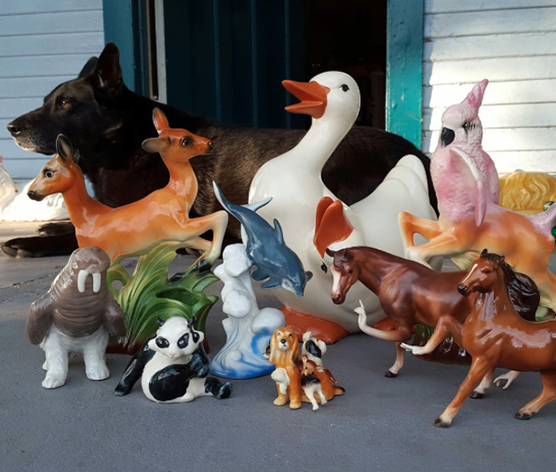
Watch Arden Durham’s interview with Debra Broz on Art Incarnation: Portraits of Artists As Art’s episode, “Is It Really a Problem?”
About Debra Broz
Debra Broz received her BFA from Maryville University, St. Louis, in 2003. She then moved to Austin, Texas, where she worked as a mixed-media artist, ceramics restorer, and visual-arts nonprofit director for eight years. In late 2013, she moved to Los Angeles, where she continues her artistic and restoration practices, and is an arts adviser and advocate. For more information on Debra Broz, please visit, https://www.debrabroz.com/.
Hayley McSwain is HCCC’s Programs Assistant and Curator of Mixed and Mastered: Turntable Kitsch, on view February 5 – May 8, 2016 in the Artist Hall at HCCC.

